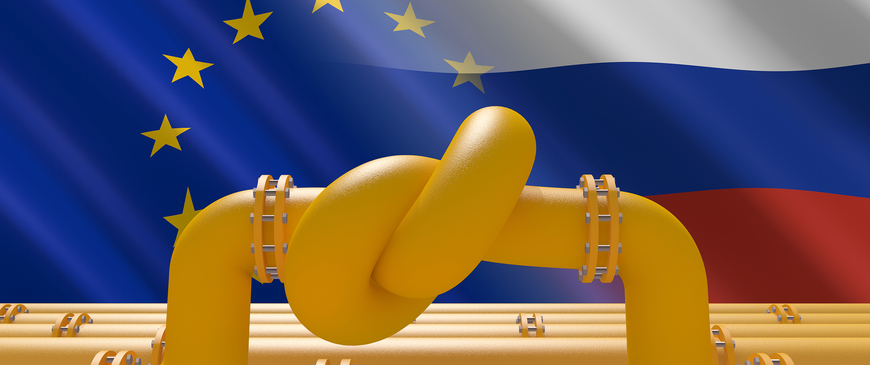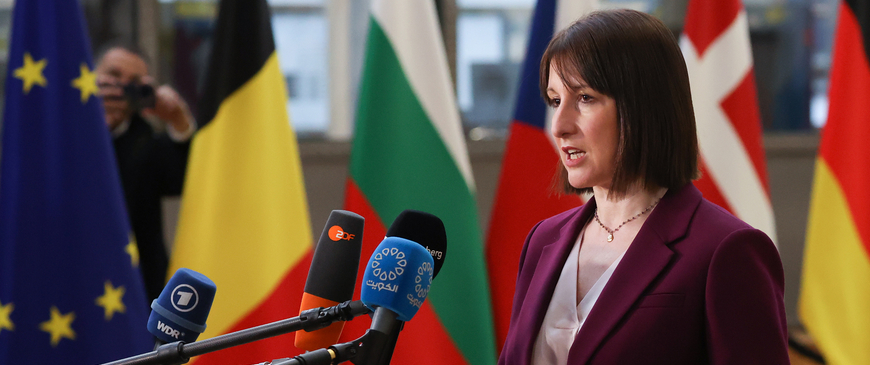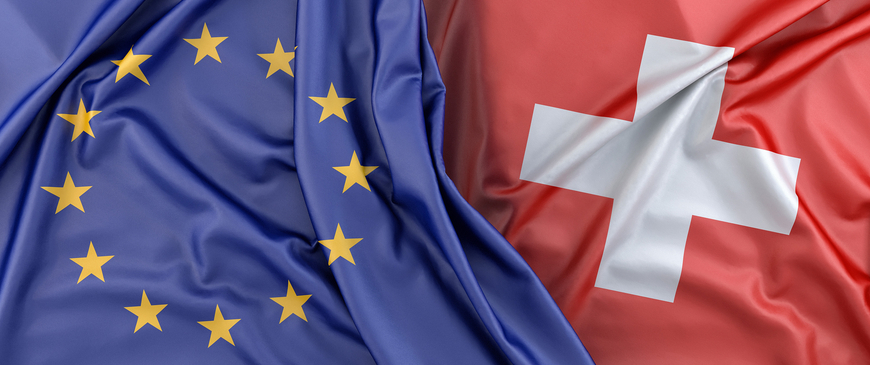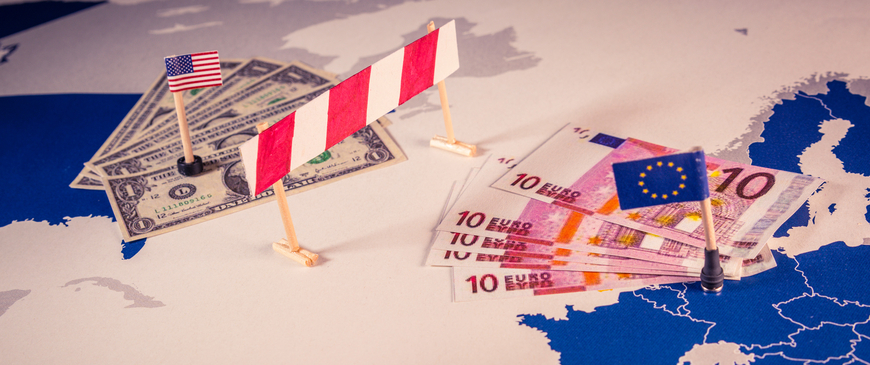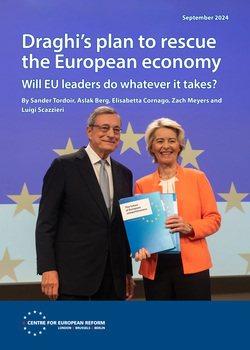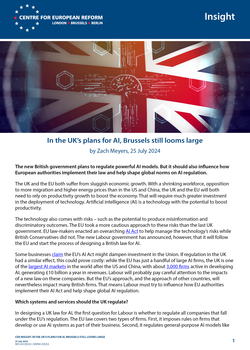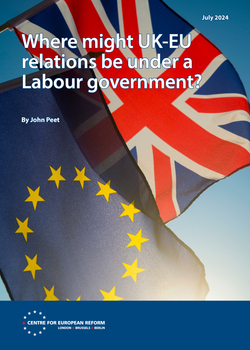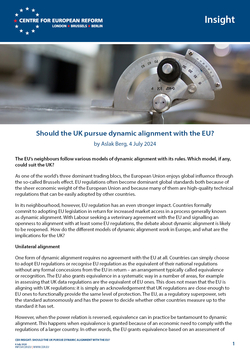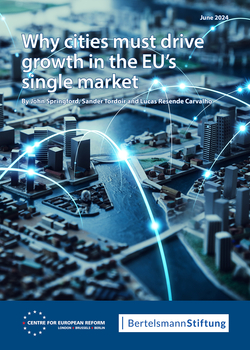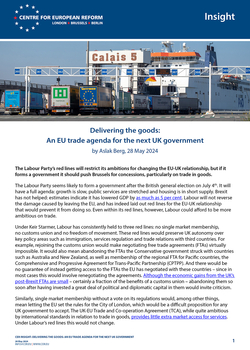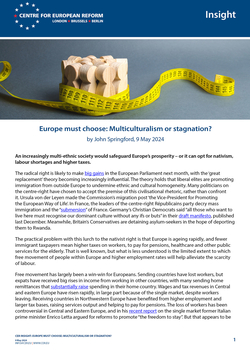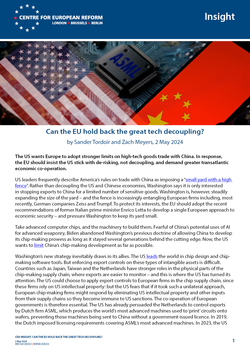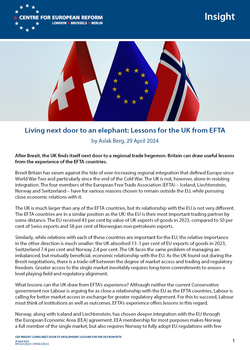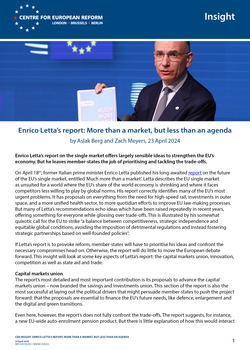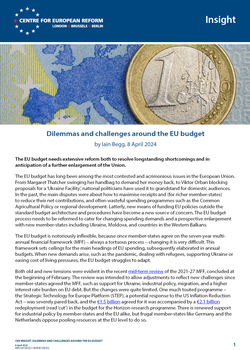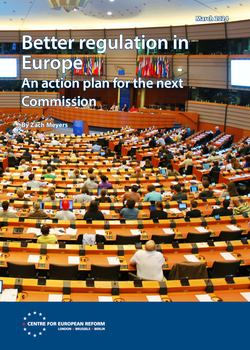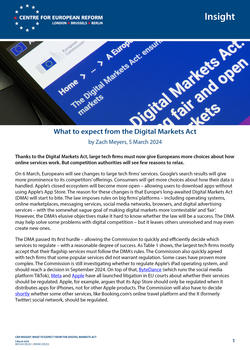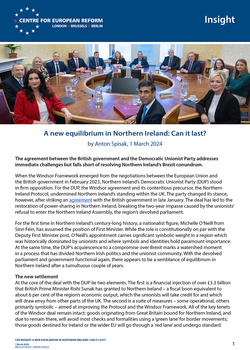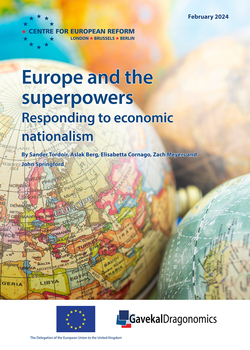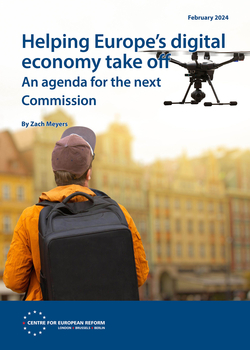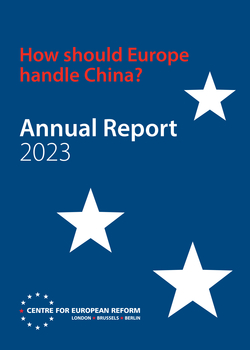Single market, competition & trade
Competition policy must reflect Europe's reality, not its aspirations
23 October 2024
The European Commission is under pressure to tweak competition laws to promote European innovation.
Surviving Trump 2.0: What does the US election mean for Europe's economy?
03 October 2024
While EU leaders fret about a second Trump presidency, they should not be complacent about Kamala Harris’s prospects. Neither president would fundamentally change the economic dilemmas facing Europe.
Draghi's plan to rescue the European economy: Will EU leaders do whatever it takes?
17 September 2024
Mario Draghi offers EU leaders a convincing roadmap out of economic stagnation. But the road to implementation is going to be politically difficult.
In the UK's plans for AI, Brussels still looms large
25 July 2024
The new British government plans to regulate powerful AI models. But it should also influence how European authorities implement their law on AI and help shape global norms on AI regulation.
Where might UK-EU relations be under a Labour government?
18 July 2024
The Labour government offers a chance for a new start for UK-EU relations. But the UK will have to both address the causes of Brexit and present a compelling offer.
Should the UK pursue dynamic alignment with the EU?
04 July 2024
The EU’s neighbours follow various models of dynamic alignment with its rules. Which model, if any, could suit the UK?
Why cities must drive growth in the EU's single market
20 June 2024
By integrating European services markets and investing in cities with high potential, the EU can raise its anemic growth rate and spread economic activity beyond successful metropolises.
Big tech rivalry could be the key to competition in AI
30 May 2024
Competition authorities might need to accept that today’s large technology firms will play a key role in artificial intelligence. They need to focus on ensuring they compete fiercely – rather than peacefully co-exist.
Delivering the goods: An EU trade agenda for the next UK government
28 May 2024
The Labour Party’s red lines will restrict its ambitions for changing the EU-UK relationship, but if it forms a government it should push Brussels for concessions, particularly on trade in goods.
Europe must choose: Multiculturalism or stagnation?
09 May 2024
An increasingly multi-ethnic society would safeguard Europe’s prosperity – or it can opt for nativism, labour shortages and higher taxes.
Can the EU hold back the great tech decoupling?
03 May 2024
The US wants Europe to adopt stronger limits on high-tech goods trade with China. In response, the EU should insist the US stick with de-risking, not decoupling, and demand greater transatlantic economic co-operation.
Living next door to an elephant: Lessons for the UK from EFTA
29 April 2024
After Brexit, the UK finds itself next door to a regional trade hegemon. Britain can draw useful lessons from the experience of the EFTA countries.
Enrico Letta's report: More than a market, but less than an agenda
23 April 2024
Enrico Letta’s report on the single market offers largely sensible ideas to strengthen the EU’s economy. But he leaves member-states the job of prioritising and tackling the trade-offs.
Dilemmas and challenges around the EU budget
08 April 2024
The EU budget needs extensive reform both to resolve longstanding shortcomings and in anticipation of a further enlargement of the Union.
Better regulation in Europe: An action plan for the next Commission
19 March 2024
As Europe tries to boost its economic growth and become more innovative, the EU must reinvigorate the ‘better regulation’ agenda – and adapt it to how the EU institutions are evolving.
What to expect from the Digital Markets Act
05 March 2024
Thanks to the Digital Markets Act, large tech firms must now give Europeans more choices about how online services work. But competition authorities will see few reasons to relax.
A new equilibrium in Northern Ireland: Can it last?
01 March 2024
The agreement between the British government and the Democratic Unionist Party addresses immediate challenges but falls short of resolving Northern Ireland’s Brexit conundrum.
Europe and the superpowers: Responding to economic nationalism
26 February 2024
Superpower competition poses a significant challenge for Europe's trade-intensive economy. The EU must evolve its toolkit and economic model to respond.
Helping Europe's digital economy take off: An agenda for the next Commission
20 February 2024
The EU must simplify its digital rulebook, support more privacy-friendly data-driven innovation, and boost investment in digital infrastructure.
How should Europe handle China?: Annual report 2023
09 February 2024
The CER's annual report starts with an essay on how should Europe handle China. The report then highlights some of the CER's most important publications and events from 2023.

